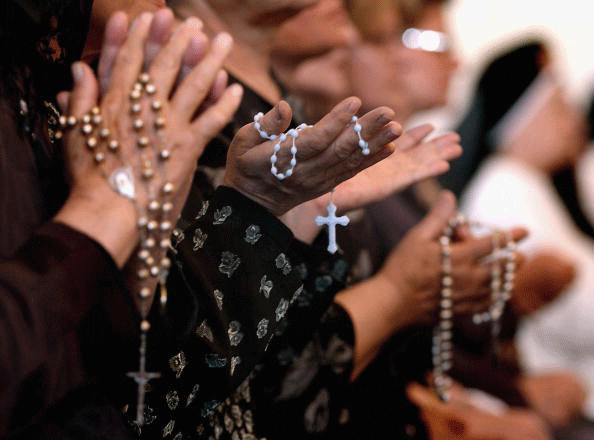
|
|
Metro Detroit is home to the largest concentration of Chaldean Americans in the entire country with more than 120,000 residing in the region.
|
DETROIT — This week, southeast Michigan’s large Iraqi Christian community observed Ba’utha, a three-day fasting celebration centered on the repentance of sins.
Ba’utha started Monday, Feb. 10 and ended Wednesday, Feb. 12. Ba’utha is Aramaic for “plead.” The three-day fast is a call to plead with God for forgiveness. Those who observe Ba’utha refrain from eating meat for three days. Some who are stricter will avoid eating before 12 p.m. and give up dairy products as well.
Chaldean Americans, who are Iraqi Catholics, observe Ba’utha. Metro Detroit is home to the largest concentration of Chaldean Americans in the nation with more than 120,000 residing here.
Other Iraqi Christian communities also commemorate Ba’utha including Syriacs. “The Syriac and Chaldean community both celebrate Ba’utha. We hold a mass everyday of Ba’utha at our church,” said Father Toma of the St. Toma Syriac Catholic Church in Farmington Hills.
Father Emanuel Shaleta of the St. George Chaldean Catholic Church in Shelby Township says during Ba’utha more emphasis is placed on pleading for mercy.
“The three-day fast is a time to ask for salvation and the forgiveness of sins,” Shaleta said. “Some of the songs and prayers recited during Ba’utha are sad, because we’re asking for forgiveness.”
Father Pierre Konja of the Mother of God Chaldean Catholic Church in Southfield says some of the most beautiful and rich prayers in the Chaldean church are recited during Ba’utha. Prayers for Ba’utha have become richer throughout the years.

The history behind Ba’utha reportedly dates back to the 6th century when a severe plague inflicted the ancient city of Nineveh in northern Iraq.
The plague devastated the city, and out of desperation the people ran to their bishop to find a solution.
The bishop came upon the story of Prophet Jonah in the Old Testament. In the story God sent Jonah to warn the residents of Nineveh of great destruction unless they repent for their sins. The king of that region declared a three-day fast to ask for God’s forgiveness. God accepted this and spared the city from destruction.
At the end of the three-day fast, the plague had miraculously stopped, and, on the fourth day people rejoiced.
Every year, the northern region maintained the three-day fast to commemorate the miracle, and the Chaldean church suggested that Chaldeans around the world participate.
PREPARING FOR LENT
The annual observance of Ba’utha occurs exactly three weeks before the start of Lent. Father Konja highlighted the importance of praying during Ba’utha. “Fasting should be an interior as well as an exterior relationship to God. As we fast and make the simple sacrifice of meat and dairy products, the interior should also be that we are growing closer to Jesus,” Konja said.
Father Konja says Lent should include fasting, prayer and almsgiving. As Catholics around the world prepare for the holy period, it is important for them to reflect on its purpose.
“If you give up chocolate ice cream, and you hate chocolate ice cream, you’re not doing much of a fast. If you give up coffee and you drink three cups of coffee a day, you will be offering something deep and simple to God,” said Konja.
He says people should remember to give up something that forces them to reflect on their relationship with God, and it doesn’t have to be limited to food. He says people can give up radio, social media, television or shopping.
“When you fast, the goal would be to offer this gift to Jesus, open your heart and fall more deeply in love with God,” Konja said.






Leave a Reply